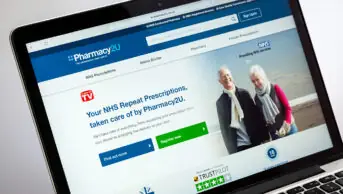
Shuttertock.com
The internet has become the blind spot in the regulation of medicines in the UK and it is clear some unscrupulous companies are taking advantage.
Most recently, the BBC Panorama programme found that opioid-based painkillers and slimming tablets were being sold through online clinics using doctors in Romania. It was one of several exposés in the media looking at how prescription drugs can be bought in large quantities with few checks in place, and which in turn can be easily bypassed. It is a worrying situation that has left regulators scrambling to catch up.
In June 2018, the General Pharmaceutical Council (GPhC) launched a discussion paper looking at putting in additional checks for UK-based online prescribing companies. For instance, it recommends that opioids would only be prescribed if the patient gave their consent for the online prescriber to contact their GP, and the GP would then confirm to the online prescriber that the drug was appropriate and that the patient was being monitored.
The Care Quality Commission (CQC) has taken steps to rein in the actions of online primary care providers, reviewing every company in England providing this service, and it is going to have the power to rate, as well as inspect, online providers. Public Health England is carrying out a review of dependence on prescribed medicine, commissioned by a government that wants to prevent the US opioid addiction crisis from crossing the Atlantic.
All these efforts are sensible, and overdue, but are hamstrung by a complex regulatory jigsaw for online pharmacies and prescribers. For instance, if a pharmacy is providing medicines online alongside a private online prescribing service and both are based in Great Britain, four regulators are required. The GPhC regulates the pharmacy and pharmacy professionals; the General Medical Council regulates the doctor; the CQC, or its equivalents in Scotland or Wales, regulate the online prescribing service; and the Medicines and Healthcare products Regulatory Agency (MHRA) authorises display of the EU common logo that indicates it can supply medicines online.
However, as revealed by The Pharmaceutical Journal
, online pharmacies who solely employ pharmacist prescribers need not register with the CQC at all.
And any attempts to tighten regulation in the UK are comprehensively undermined by the borderless nature of the internet. An online pharmacy based in Great Britain can operate with a prescribing service based elsewhere in Europe (as in the example looked at by Panorama). Following the BBC broadcast, Steve Field, the inspector for general practice at the CQC, described himself as “very angry” at the virtual free-for-all in accessing prescription drugs, but admitted that as things stand in cases of some prescribers acting from abroad the regulator is powerless.
Among the GPhC’s proposals are that pharmacies must ensure patients know if their prescriber is operating from abroad, with a requirement that a pharmacy owner would have to gain explicit informed consent from a patient to be treated by a prescriber outside of UK regulation. This is eminently sensible, but it is easy to see how this could simply result in yet another tickbox that is easily completed.
The GPhC and other regulators clearly understand the scale of the online menace, and are doing what they can to tackle the problem, but it will need government intervention, and very probably European and international agreement, if the ‘Wild West’ of online prescribing is to be brought under control. But the UK is hardly likely to play a leading role in EU politics post-Brexit. Leaving the EU is perhaps an opportunity to adjust the regulatory environment, although the UK government has repeatedly said that it wants to replicate current pan-European medicines regulations post-Brexit.
In the meantime, it is likely that more people will be harmed. The MHRA’s #FakeMeds campaigns offer advice designed to prevent unwitting customers buying drugs from “dodgy” websites. But we urge the government to take this one step further and authorise a national publicity campaign on the dangers of buying medicines online more generally. They should also emphasise that patients should talk with their pharmacist if they have questions about the drugs they are buying. In the absence of effective regulation, the public must be warned that they have to take steps to protect themselves.


